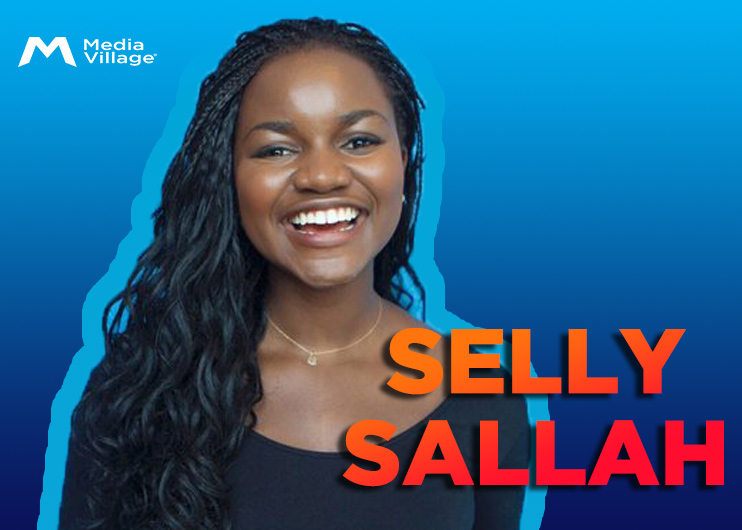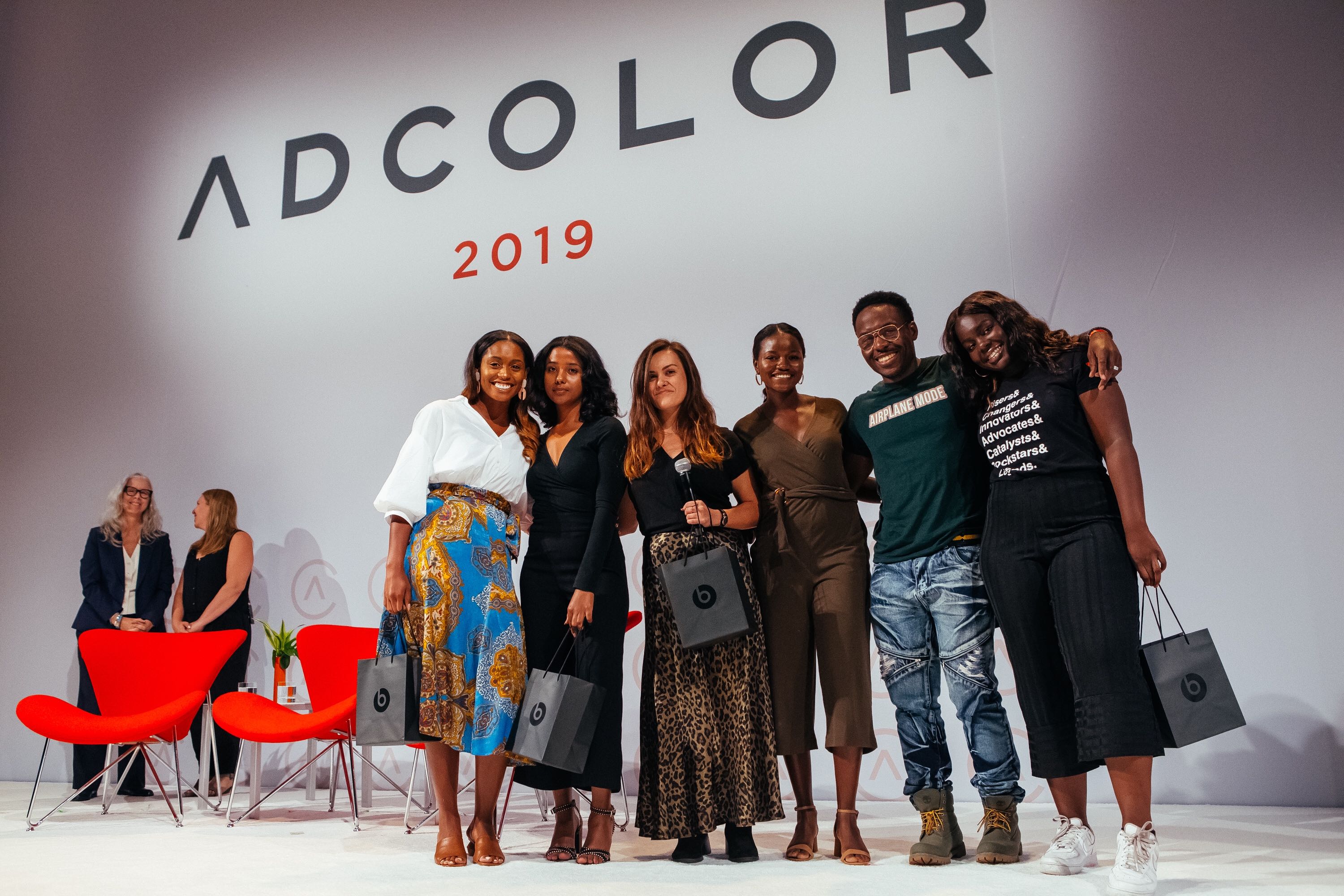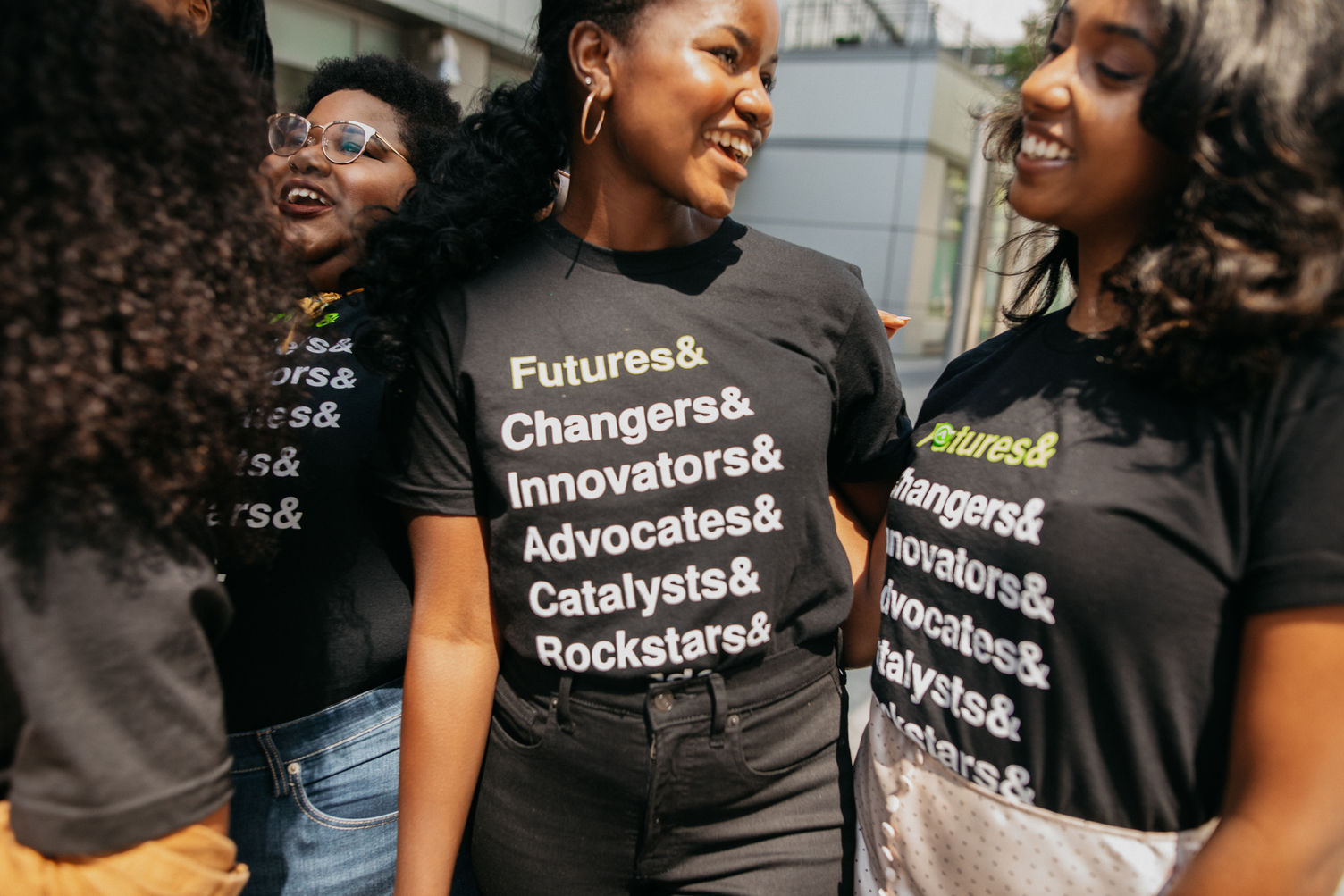Why Support the Next Generation of Diverse Ad Industry Leaders?

When Selly Sallah (pictured above) first entered the advertising industry, she was disheartened that so few people looked like her. Fortunately, Sallah, a marketing associate at National Public Media, the sponsorship subsidiary of NPR, was selected to participate in ADCOLOR Futures, a weeklong program dedicated to supporting the next generation of diverse industry professionals. The program provides guidance from notable industry leaders with expertise in various aspects of advertising, marketing, and media — with an emphasis on diversity and inclusion (D&I).
Sallah represents just one of the many Generation Z professionals entering the industry, eager to further their career, and looking for strong D&I practices at their organizations. Business Insider says that, "Generation Z, is the youngest, most ethnically-diverse, and largest generation in American history, comprising 27 percent of the US population." They represent the future of the industry, and many of them look forward to bringing others along as they progress in their career.
"It's really good to reach success and rise up in the industry," Sallah said, "but my ADCOLOR experience made me realize to also reach across and reach back."

Many agencies and brands — acutely aware that Gen Z also represents a diverse and growing group of brand-conscious consumers — are investing in opportunities for their youngest employees to attend conferences, events, and training that teach them not only skills related to their job but, just as important, how to implement D&I initiatives at their organization.
Team success is far more likely when employees feel welcome. A study from Gartner shows that "workplaces that are both diverse and inclusive benefit from a 12 percent increase in discretionary effort, a 20 percent increase in intent to stay, and a 50 percent improvement in team collaboration and commitment."
Reminding coworkers of their cultural differences through unconscious biases or unintended microaggressions can result in low morale or even an unsafe space for some employees. Programs such as ADCOLOR Futures can help drive the change needed to curtail or eliminate these negative situations. In fact, Sallah described her participation in the ADCOLOR Futures program as monumental.
"The Futures program was great because I've never had the opportunity to be a part of such a safe space with industry peers who look like me,'' she said.
Early in her career, Sallah recognized that "there are a ton of unconscious biases that prevent black women from rising to positions of leadership.'' Sallah's advice to her peers is to take action to counter that, starting with their own feelings. Some people from marginalized backgrounds struggle with self-doubt, she says. So, Sallah encourages other young people to be aware of when they're experiencing imposter syndrome: a feeling of fraudulent inadequacy due to one's false view of how they're perceived.

"Don't let that stop you from reaching for what you want," Sallah says.
When I asked Sallah about her biggest takeaways from the program, she spoke about how important it is for companies to understand the differences between diversity and inclusion. Although many executives recognize the benefits of a diverse workforce, they haven't been as successful with identifying ways to encourage inclusion among their existing workforce as more diverse employees join their teams. Along with hiring a diverse staff, Sallah pointed out, companies must retrain current employees, support a variety of affinity groups, promote inclusion at an individual level, and focus on activism instead of simply advocating for diversity and inclusion while on panels.
Throughout Sallah's life, she has used her passion for politics and communications to do socially impactful work. Prior to her current role, she worked in the Obama White House's Office of Presidential Correspondence, answering calls from the American people, analyzing correspondence sent to President Obama, and drafting custom responses. Before that, she used her time at Boston College to amplify causes she cares about, which included working for the campus sexual assault prevention group, the progressive student newspaper, and the Campus Activities Board. These experiences prepared her to understand how to create more equitable opportunities for underrepresented groups, even before she placed a unique emphasis on her love for media and advertising.
Sallah's experience with ADCOLOR taught her that diversity and inclusion make advertising — both the industry and the creative — stronger. Her advice for young brand marketers looking to become leaders in their organization is to find influential advocates and mentors within their network.
"You might not be in a position of power at your organization, so try to find allies and affinity groups," she said. "If an affinity group doesn't exist, be the catalyst for change and create one yourself, or find ways to share your experiences and stories with others in your workplace."
Photo captions: Image on stage (L to R): Alexandra Givan; Helena Berhane; Erika Casales; Selly Sallah; Ace Patterson; Nicole Dei
Image in the T-Shirts (L to R): Makeda Loney; Selly Sallah; Helena Berhane
Click the social buttons to share this story with your friends and colleagues.
The opinions and points of view expressed in this content are exclusively the views of the author and/or subject(s) and do not necessarily represent the views of MediaVillage.com/MyersBizNet, Inc. management or associated writers.


